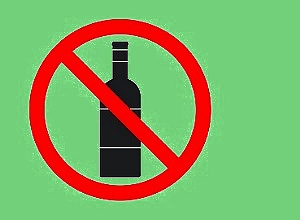Bans on alcohol could be a sensible policy to help South Africa through new health crises, suggests a study published this week in the Australasian journal Drug and Alcohol Review. But only complete prohibition appears to really free up medical resources – partial restrictions do not – reports Business Insider SA.
A complete prohibition on the sale of alcohol makes for an empty hospital trauma unit, but partial measures such as restricting sales to weekdays or shortening bottle store opening hours do not, says the study from Stellenbosch University, Worcester Regional Hospital and the South African Medical Research Council.
According to the Business Insider SA article published on 18 May 2021, the authors say their work shows that "alcohol prohibition correlates with a decrease in health seeking behaviour for injury".
"For future pandemics or other situations where a reduction in traffic to health facilities is needed, this type of policy can be considered."
Publication of the study came as several organisations in the liquor trade pre-emptively stepped up lobbying efforts against what they fear may be new restrictions from a government concerned about a third wave of coronavirus infections.
The study, “Trauma trends during COVID-19 alcohol prohibition at a South African regional hospital”, was published in Drug and Alcohol Review, which is the official journal of the Australasian Professional Society on Alcohol and other Drugs.
According to Business Insider SA, the research analysed data from the Worcester Regional Hospital for 2020, and compared it with 2019, across trauma admissions, trauma operations, and stab wound admissions, "as a proxy for intentional injury".
The bans and partial bans on alcohol sales in 2020 show a pattern of decreased hospital use, followed by a resurgence when the ban is lifted, even if just in part.
South Africa banned booze between the end of March and the beginning of June 2020, then had partial restrictions for a month and a half, followed by another month of complete prohibition from mid-July. Sales then remained restricted for the rest of the year.
"Each time a complete ban was instituted, there was a significant drop in trauma volume which was lost by allowing alcohol (even partial sales)," wrote the seven authors, all associated with Stellenbosch University or the SA Medical Research Council, which helped fund their work.
Business Insider SA continues: Specifically, there was a 59% to 69% decrease in trauma volume between pre-COVID-19 and the first complete ban period. When alcohol sales were partially rein-stated, trauma volume significantly increased by 83% to 90% then dropped again by 39% to 46% with the second alcohol ban."
The study "demonstrates a clear trend of decreased trauma admissions and operations during complete alcohol prohibition compared to when alcohol sales were allowed or only partially restricted," said the authors – before using a sentence that may find fertile ground among policy makers right now.
"These findings suggest that temporary, complete bans on alcohol sales can be used to decrease health facility traffic during national emergencies."
The results could be, but probably were not, affected by other elements of lockdown rules such as curfew, the authors argue.
Trauma trends during COVID‐19 alcohol prohibition at a South African regional hospital
Kathryn M Chu, Jenna‐Lee Marc, Eyitayo Omolara Owolabi, Riaan Duvenage, Mukhethwa Londani, Carl Lombard and Charles DH Parry.
Author affiliations: Centre for Global Surgery in the Department of Global Health at Stellenbosch University; the Department of Surgery at Worcester Regional Hospital; Alcohol Tobacco and Other Drug Research Unit and the Biostatistics Unit at the South African Medical Research Council.
Published in Drug and Alcohol Review on 17 May 2021
Abstract
The objective of this study was to examine the relationship between trauma volume and alcohol prohibition during the COVID‐19 lockdown in South Africa.
Methods
This was a retrospective analysis of trauma volume from Worcester Regional Hospital in South Africa from 1 January to 28 December 2020.
We compared total volume and incidence rates during five calendar periods; one when alcohol sales were allowed as per normal and four when alcohol sales were completely or partially banned. Poisson regression was used to model differences between alcohol ban and non‐ban periods.
Results
During the first period (pre‐COVID‐19, no ban), the trauma admission rate was 95 per 100 days, compared to 39 during the second period (complete ban 1), 74 during the third period (partial ban 1), 40 during the fourth period (complete ban 2) and 105 during the fifth period (partial ban 2).
There was a 59-69% decrease in trauma volume between the no ban and complete ban 1 periods. When alcohol sales were partially reinstated, trauma volume significantly increased by 83-90% then dropped again by 39-46% with complete ban 2. By the second half of 2020, when alcohol sales were partially allowed again (partial ban 2), trauma volume increased by 163-250%, thus returning to pre‐COVID‐19 levels.
Discussion and conclusions
Our study demonstrates a clear trend of decreased trauma volume during periods of complete alcohol prohibition compared to non‐ and partial alcohol bans. This finding suggests that temporary alcohol bans can be used to decrease health facility traffic during national emergencies.
SEE ALSO FROM THE MEDICALBRIEF ARCHIVES
SA’s alcohol bans were not ‘not based on credible science’
Govt’s alcohol ban was not properly considered, argues SAB
Western Cape trauma cases more than double with lifting of alcohol ban
Scientists offer six proposals to limit boozing after alcohol ban is lifted

